"There are games that are just comfort food. This is not one of those"
Neil Druckmann on love, hate and The Last of Us Part 2.
It's nearly here. Seven years after The Last of Us, Naughty Dog's sequel is almost upon us. We've spent several hours with the game, analysed its staggering tech and here, ahead of our The Last of Us Part 2 review which will be landing on June 12th at 8.01am BST, is the first part of an interview with director Neil Druckmann (a word of reassurance, too - this is spoiler free, and we'll be delving more into story details with Druckmann at a later date).
Were you always wanting to challenge players with the story you wanted to tell with this sequel?
Neil Druckmann: I think what made the first game work for us was that it's this kind of emotional journey of the first game is this idea we wanted to say like, can we through interactivity, gameplay, storytelling, music, all those things, make you feel, or come as close to feeling the unconditional love a parent feels for their child? And then the beautiful moments that come with that and the kind of insane horrific moments that could come, like how far someone's willing to go for someone they love unconditionally.
We sometimes have this conversation about like, love is sometimes insane, right? It leads you to insanity - and that's not a judgement necessarily. It's just who we are as human beings. I think we're wired this way, and we see by the end of it how far Joel is willing to go to protect Ellie. And with this game, you know, we toyed with different ideas that didn't work out because they were lacking that same emotional core.
And then what we landed on is like, again, that's a kind of very similar question - how far are you willing to go for love, but when someone has wronged someone you really care about, how far are you willing to go to do right by them to bring the people responsible to justice and what effect that would have could have on you - in this case Ellie - the journey she goes on the people around her, if they're going too far and if so are they ever coming back from that?
Those became interesting philosophical questions to hang the whole narrative on top of.
Neil Druckmann: I guess they're in the sequel as well. It almost feels in parts that technology is making a comeback, like you have electricity and Jackson, there's a lot of home comforts now where you have people playing Vitas. We're 25 years after the outbreak day and humanity is gonna start rebuilding itself. But then you also need to have those threats.
There's the threat of the infected and they're constantly applying pressure, and that pressure is making them act in certain ways. So you see them walling themselves off like in Jackson. They can try to have a community in some semblance of society they used to have before the outbreak. But because years later, you know, like, they were able to get hydroelectric plants growing, and now they have electricity and some sewage and some of those things that we take for granted, they got those things back up. Other places don't have those luxuries, and they survive in different ways, we got to see like the hunters in the first game, their survival is to kill other people and steal their supplies.
When we get to Seattle, and that part of the demo, or the part of the preview that you got to play, we get to see that there are two groups fighting over the resources of Seattle. And one of them is a secular, more militaristic group, and they also restore electricity, they have generators, they have weapons, and a religious group that has rejected a lot of those things and have become more of the Luddites, and they're trying to live off the land. And that's how they see they're going to protect themselves and their values.
So each group and by extension each character within those groups, have different values. And what becomes ripe for drama is exploring what happened when you bring these two groups together and their values don't match up. How do they deal with that?
And I guess that feeds into the other things that they do to each other as well. Like, they're saying, well, I don't believe in that, so therefore, if you do that you're a bad person. And it makes it easier for them to make judgment calls, and for you, the player to kind of judge them as well.
That's the game on a high level, right? It's the pursuit of justice to the ends of the earth. But when you go deeper it's about tribalism, trauma, and how we often see ourselves as righteous and other people as wrong, and how we can - and this is a universal human thing - associate ourselves with a tribe. Often when there's a conflict with another tribe, we dehumanize them, we make them less than us, so we can justify the things that we do in the pursuit of justice.
That's not a judgment, again, that's just like what happens and you see the examples all over the world. And even within countries that supposedly are not in war and are doing okay, like just look at what's happening politically around the world, and the discourse we have online with each other. Our hope is with this game to explore that, again, not in a preachy way, but in kind of a thought provoking way. And that's what we wanted to do.
I think in particular, the Paris Games Week trailer really caught people's eye because the violence is so real and it's clumsy in a way. I think that's where a lot of people's discomfort lies. It's not the stylized stuff we're used to seeing, it is horrible and nasty. It's not glorifying the acts that you do. Were you offering support to the staff when it comes to that portrayal of violence - was there emotional support going on in the studio? Because I think I feel like if you're doing that over a period of time, it must have quite an effect on you having to see that all the time.
Neil Druckmann: So I guess there's a couple of questions there. One is, we felt, you know, if we're going to deal with a story about the cycle of violence, and what people are capable of doing to each other, both on a mental level and the physical level, we can't shy away from that. That would be doing the story a disservice. So we have to own that, whether people like it, love it, hate it. That's what the story is. That's the core of it that we have to do. And then whenever you deal with difficult subject matter or physical aesthetics of that difficult subject matter, like the violence you're describing, there's people that work on a team to deal with in different ways. Some people just have the complete separation. Like they're crafting something, and they're looking at the details of it. And they're not like thinking about the greater context is like, how do I replicate the way light is reflecting off of this liquid surface - they have complete separation.
There's other people that might be affected by it. And what we've done with this game for the team is to say, look, if there's any content you feel uncomfortable working on with it for a short period of time, a prolonged period of time, there's plenty to do in this game, right? There's plenty of other things to work on that aren't those things. Let's give you the tasks and make you comfortable. At the end of the day we want people that are passionate about what you're doing. That's when they do their best work. If something ever makes them feel uncomfortable, or they're not into it, they're not going to do their best work. We want to craft the best game possible.
In the preview that we played, and also in the State of Play event, and we saw that the Vita owner is playing Hotline Miami. Is that an intentional nod to a game with similar themes about violence. And how does The Last Of Us 2 build on that if so?
Neil Druckmann: We wanted to show those things that we take for granted. Like Ellie has her Walkman and she can listen to music and some people have movies and there's a girl that found a Vita. And by the way, that's not the only time you'll see the Vita in the game! So okay, what is an interesting game to put in? And there's one part where we put in one of our games, but it's like, okay, is there an opportunity here to just make some meta statement about the kind of narrative we're after? And we're also just huge fans of Hotline Miami - I love that game. So we reached out to those guys, and they're nice enough to let us put the Hotline Miami within The Last of Us Part Two. It just felt like a nice nod.
I hope it's okay, just briefly to touch on the elephant in the room as well. I was wondering if the leaks had any impact on the studio?
Neil Druckmann: They sucked. You've worked on something for so long, and then to have it come out in the way that it did was disappointing, to myself and other members of the team. But pretty quickly we huddled together and wanted to discuss it. First of all, The Last Of Us One had stuff leak, Uncharted 4 had a truck where the games were stolen off that truck early and people were like posting the ending early. And that didn't take away from anything at the end, because nothing compares to playing it. Nothing compares to being Ellie and feeling those moments, not just in cutscenes, but in gameplay, conversations, the music and the emotional effect that has on you. And the story was constructed in such a way that it's really not about twists and turns. It's about slowly ratcheting the crank and feeling the tension with the choices the characters make.
So okay, it sucks. But we know once people get their hands on it, they're going to feel what it is we're after whether they've seen it or not, and that's that's what made us confident. Okay it's going to be uncomfortable for a while, the games gonna be out there, and I think you're going to get what we want you to get out of it.
Yeah, it totally sucks. And it really annoys me as well because it just felt like there's a toxicity around aspects of the game at the moment, and a minority that won't accept any depiction of diversity at all. I'm curious as to what your thoughts on the reaction to that is because it seems so contradictory to what the game itself is trying to say.
Neil Druckmann: There's a lot of the feedback that came out, our take on it is, you don't know. Right? There's so many false things out there. We don't want to go out there and correct anything because that would be spoiling the game in a way - by saying what it isn't, we're kind of saying what it is.
And then as far as the kind of characters we put in our game, we try our best. We made a journey with Ellie, and Ellie is who she is. It's been defined in the previous game. We're going to continue going forward. She's now 19. How do we explore all the facets of what it's like to be 19? You think you're invincible. You think you know what's right and wrong in the world. You are sexually attracted to people you're attracted to. Those are all things we want to explore for this character - that's how we do honest storytelling.
So if you somehow have a problem with that, well, then that sucks, but the story's gonna win for us. It's ironic or maybe sad - I think that people will benefit the most from this kind of story are the ones that are yelling the loudest right now, but I hope there's enough in the game to draw them in and just normalize stuff that is normal. It is part of our society and it is part of owning up to an interesting nuanced character.
Yeah, 100%. I feel so bad that you guys have to weather the storm. But I really think that it's going to be worth it for the people who are finally going to see themselves represented in a game like this. And I think that the people that matter are really gonna appreciate it. Just, you know, from my perspective.
Neil Druckmann: And yeah, a lot of the misconception is like, oh, we're somehow sacrificing the story to win diversity points. And that's not how we work. Everything is in service of the story. Getting better diversity gives us better story, gives us fresher perspectives on conflict. And I hope once they play the game, they'll realize it.
Did you ever worry it was a consequence about making a game about hatred that it kind of begets more hatred in kind? I guess I think a lot of players are uncomfortable with having any kind of a mirror held up to themselves in that respect.
Neil Druckmann: Oh, it's interesting that some of the reaction is very much indicative of what the game is designed to do. And I think it's a bit into spoiler territory, but we want to elicit certain feelings from the player and then have them reflect on those feelings for the second part. So for us, it's like okay, we got the first part. Now let's see if we can get the second part once the game is out there because again people just don't know. There's all these theories about what the ending is but the ending is not out there. You actually don't know how it all comes together.
We're finally getting it into people's hands, to see this meticulous journey that we've crafted for Ellie and how these events affect her, the highs and lows of that journey - that there's beautiful sweet moments and these dark, hard moments to deal with. And we want it to be challenging, right? It's like, yes, there are games that are just comfort food. This is not one of those games - there are moments in the game that are comfort food, and there moments are really challenging emotionally to play through. That's part of the design of it.
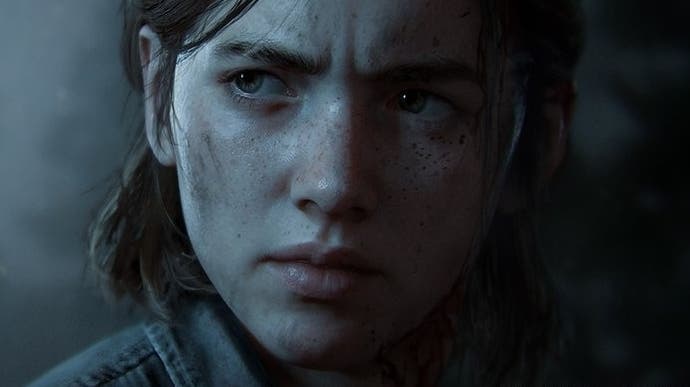



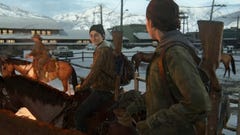



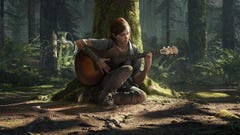
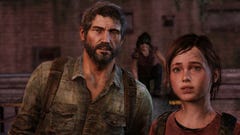
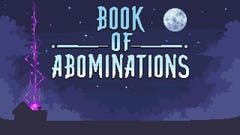

.png?width=240&height=135&fit=crop&quality=80&format=jpg&auto=webp)




